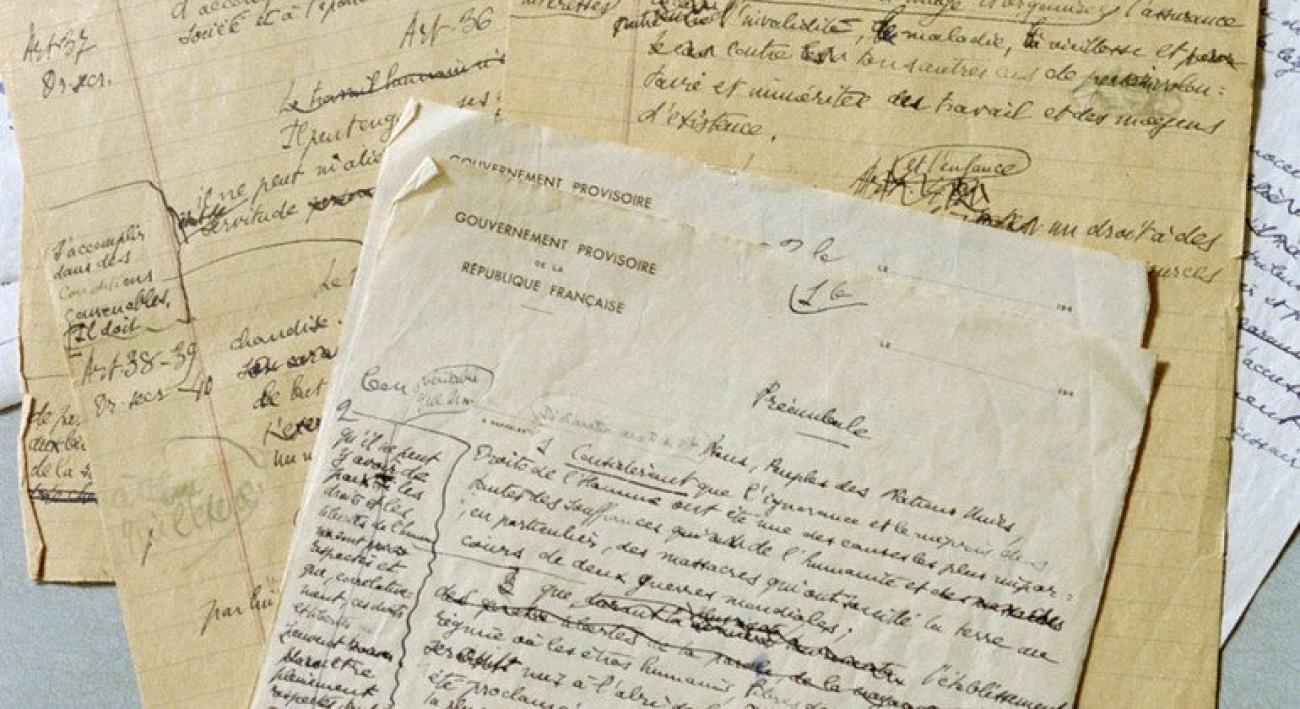UN Secretary-General António Guterres on Monday called on world leaders to rely on the Universal Declaration of Human Rights (UDHR) as a roadmap to not only uphold human rights but also prevent wars, combat hatred, rebuild trust and build a sustainable future for all.
In a video message to a high-level event marking the 75th anniversary of the Declaration, Mr. Guterres recalled that the landmark document presented a “beacon of hope” for humanity and a blueprint for fundamental freedoms.
“As we celebrate this 75th anniversary, I call on every Member State to use this opportunity, and the Summit of the Future next year, to strengthen their commitment to the values and principles of the Universal Declaration,” he urged.
“Let us strive to uphold and promote human rights, freedom and equality – for all. Together, we can realize the promise of the Universal Declaration of Human Rights,” he said.
Tangible pledges
The two-day event, in Geneva on 11 and 12 December, features two key pledging sessions for nations to announce tangible commitments to advance human rights protection.
In segments entitled ‘Voices in defence of human rights’, participants are expected to share their testimonies and perspectives on UDHR’s impact. Panel discussions will be also held with experts examining challenges and considering the way forward on the universality and indivisibility of human rights and how to strengthen the human rights system.
A leaders’ segment with Heads of State will be held on Tuesday, followed by round tables on peace and security, digital technologies, climate and the environment, and development and the economy.

© OHCHR/Irina Popa
UN High Commissioner for Human Rights Volker Türk. (file)
Failures, despite progress
Also speaking the opening, UN High Commissioner for Human Rights Volker Türk said that while the Universal Declaration has been a source of transformative societal progress across the world, the past 75 years have also seen “numerous failures to uphold human rights”.
“My thoughts go to the millions of people suffering unbearably in the Occupied Palestinian Territory, notably Gaza, and Israel; in Sudan; Ukraine; Myanmar; and so many other places,” he said.
Mr. Türk acknowledged UDHR’s diverse roots, including the world’s reaction to the horrors of the Holocaust, the Haitian revolution, “the profound African values of interdependence, cooperation and collective responsibility” and the Islamic principle of zakat, or compassionate sharing, among others.
The Declaration’s universality made it a guide to solving the world’s most pressing challenges, the UN rights chief said, and its anniversary is a call to action to work together and base all decisions “on the intrinsic and equal value of every human life.”
‘Thread that weaves us’
Meanwhile, in their respective commemorative messages for Sunday’s Human Rights Day, Dennis Francis, President of the UN General Assembly, and Paula Narváez, President of the Economic and Social Council also reiterated the importance of the Universal Declaration.
“Human rights are the thread that weaves us … as we proudly mark #HumanRights75, we reaffirm our unwavering commitment to the principles enshrined in it,” Mr. Francis wrote on X, formerly Twitter.
Ms. Narváez recalled the words of anti-apartheid champion and former President of South Africa Nelson Mandela: “to deny people their human rights is to challenge their very humanity.”
“Let us put humanity at the core of our actions, and join together to respect, protect and fulfil human rights for everyone, everywhere,” she urged.
Human Rights Day
Observed annually on 10 December, Human Rights Day marks the 1948 adoption by the UN General Assembly of the Universal Declaration of Human Rights.
The Assembly proclaimed the landmark document as a “common standard of achievement for all peoples and all nations”, towards which individuals and societies should “strive by progressive measures, national and international, to secure their universal and effective recognition and observance”.
UDHR sets out a broad range of fundamental rights and freedoms to which all of us are entitled. It guarantees the rights of every individual everywhere, without distinction based on nationality, place of residence, gender, national or ethnic origin, religion, language, or any other status.
Although not a binding document, the Declaration inspired more than 60 human rights instruments which together constitute an international standard of human rights



















